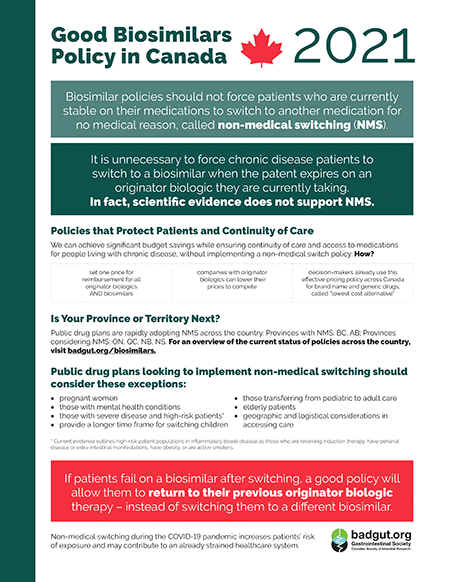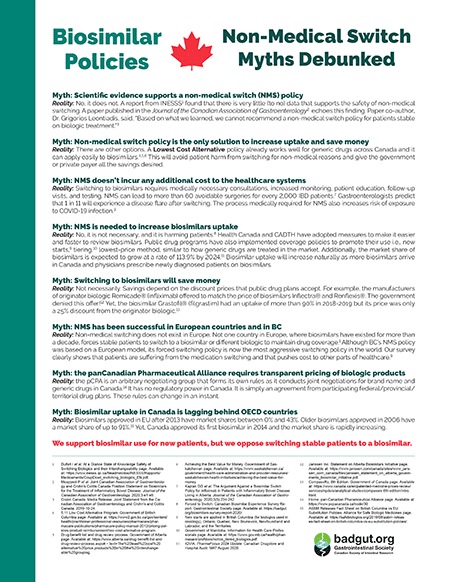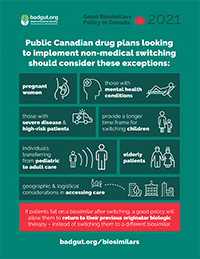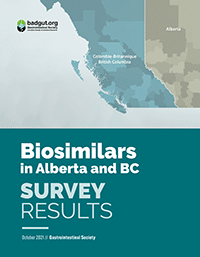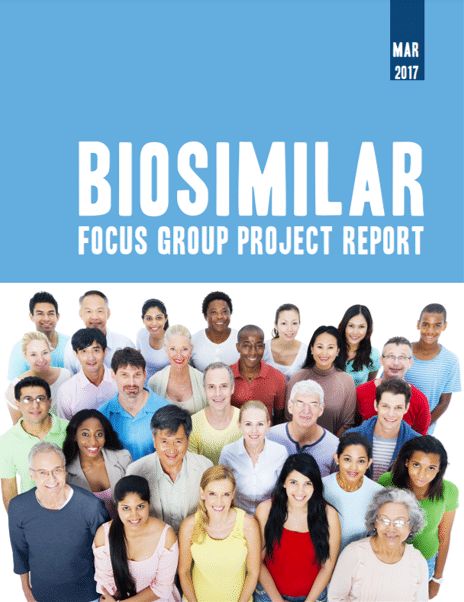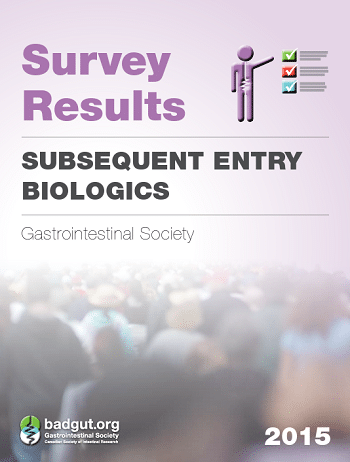Everything You Need to Know About Biosimilars
Do you or a loved one have an inflammatory disease such as Crohn’s disease, ulcerative colitis, rheumatoid arthritis, or psoriasis? Have you heard about how biologic medications offer a new, powerful treatment option for those who have disease that is resistant to other medications? Do you know what makes biosimilars different from other generic drugs?
Use this page to discover everything you need to know about biosimilars. The video below is a great starting point, and you can follow the links to basic overviews and more in depth discussions on the effects of biosimilars. Don’t forget to check out the links to other patient groups, as these are all great resources.
Biosimilars Video
Infographs
Survey Results
Articles and Discussion
Updated! Biologics and Biosimilars Available in Canada: Find out which biologic and biosimilar medications are available in Canada. Click here +
Updated! Provincial and Territorial Biologics Policies: Learn more about the different provincial/territorial policies regarding biologic and biosimilar coverage. Click here +
Biologics and Biosimilars Overview: Learn all about the differences between biologics and biosimilars, and regulation of these medications in Canada. This page also includes a guide on what questions to ask your health care team about biosimilars so that you can stay informed. Click here +
How Biologics and Biosimilars Work: View diagrams that help explain how biologic medications work in the human body. Click here +
Biologic/Biosimilar Forum Report (PDF): On September 30, 2019, the GI Society hosted a forum about the BC Ministry of Health’s decision to switch patients from infliximab (Remicade®) to a biosimilar infliximab (Inflectra® or Renflexis®) to continue to be covered under BC PharmaCare. This report analyses the information gleaned and offers potential patient-focused alternative solutions. Click here +
About the National Biosimilars Working Group
As the number of biosimilar drugs available in Canada grows, so will the list of disease areas affected by health policies that govern prescribing practices around their use. Therefore, creating responsible, evidence-based policies that consider the different impact on patients in each of the disease areas affected is required to effectively maximize cost savings to public drug and health care budgets, while ensuring optimal health outcomes for patients.
The Biosimilars Working Group is a diverse group of non-profit organizations, registered health charities, and health care advocacy coalitions that are dedicated to ensuring patient outcomes and considerations are at the centre of health policy discussions in the biologics treatment area. The Biosimilars Working Group also strives to create up to date and evidence-based educational material for patients and healthcare professionals to facilitate informed consultation regarding treatments.















